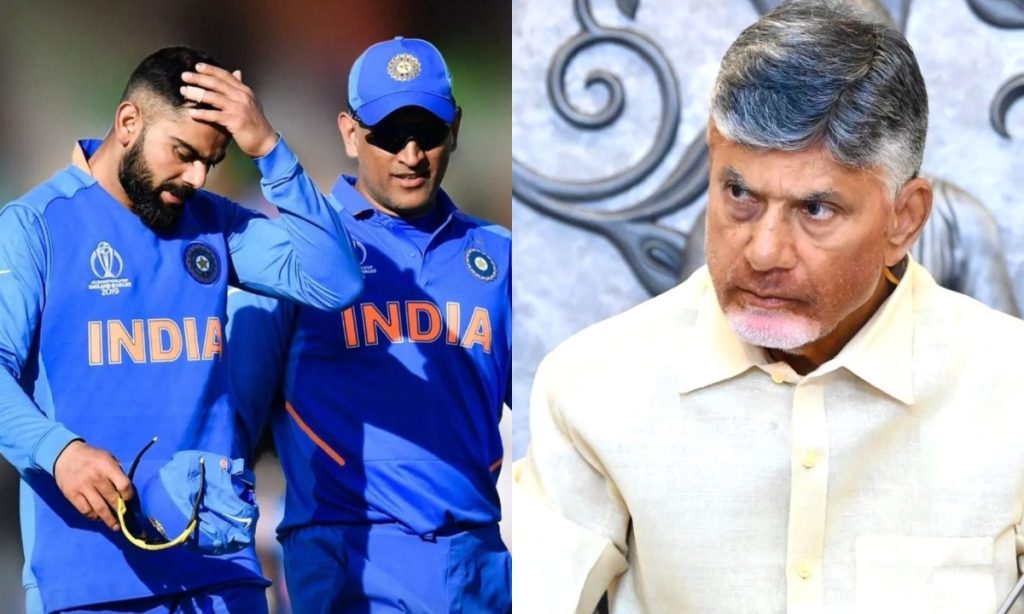Sports and politics intersect, leadership styles often become a topic of intrigue. Recently, Andhra Pradesh Chief Minister Chandrababu Naidu expressed a preference for Virat Kohli’s leadership style over that of MS Dhoni, sparking a conversation that transcends cricket. This preference, articulated in a setting where Balakrishna likened his leadership to Dhoni’s, while Naidu leaned towards Virat Kohli, offers a fascinating glimpse into how leadership qualities are perceived and valued.
The Kohli Approach: Aggressive and Dynamic
Virat Kohli, known for his aggressive gameplay and dynamic captaincy, embodies a leadership style that is proactive, energetic, and visibly passionate. His approach on the field is marked by a relentless pursuit of excellence, often pushing boundaries and challenging norms. This style resonates with Naidu, who might see in Kohli a reflection of modern governance where agility, directness, and a high-energy approach can galvanize both a team and a constituency. Kohli’s recent performance, scoring 70 in the second innings of the first Test against New Zealand, despite the team’s loss, showcases his resilience and ability to perform under pressure, qualities Naidu might find appealing in navigating the complexities of political leadership.
Balakrishna – You are a leader like MS Dhoni, I’m a player like Virat Kohli.
AP CM Chandrababu Naidu – I always prefer Virat Kohli.
Dhoni’s Calm: Strategic and Calculated
MS Dhoni, on the other hand, is celebrated for his calm demeanor, often described as ‘Captain Cool’. His leadership is characterized by strategic thinking, patience, and an unflappable nature under pressure. Dhoni’s approach might appeal to those who value stability, foresight, and the ability to make decisive yet calculated decisions. However, Naidu’s preference for Kohli suggests a leaning towards a more aggressive, immediate impact style over the long-term strategic calm that Dhoni represents.
Political Parallels
In politics, as in cricket, the choice between Kohli’s and Dhoni’s styles could symbolize different approaches to governance. Naidu’s preference might indicate a strategy focused on immediate action, visible change, and direct engagement with the electorate. Kohli’s style could inspire a political approach where the leader is at the forefront, actively involved in every aspect of governance, pushing for reforms and immediate results. This contrasts with Dhoni’s method, where the leader might take a step back, allowing the team to operate within a well-thought-out framework, intervening decisively only when necessary.
Why Naidu Prefers Virat Kohli
The preference for Virat Kohli could be rooted in the current political climate, where rapid, visible changes and direct communication with the public are increasingly valued. Kohli’s approach might be seen as more in tune with the younger demographic’s expectations for leaders who are not just decision-makers but also visible, energetic, and directly accountable. Naidu’s choice might also reflect a broader trend in leadership where charisma, passion, and an aggressive pursuit of goals are prized, aligning with Kohli’s on-field persona.
Chandrababu Naidu’s preference for Virat Kohli over MS Dhoni in leadership style offers more than just a cricket analogy; it’s a commentary on the evolving nature of leadership in politics. While Dhoni’s calm and strategic depth have their place, Kohli’s dynamic and aggressive approach seems to resonate more with Naidu’s vision for governance. As Kohli prepares for action from October 24, 2024, his performance will continue to be watched not just for cricketing prowess but as a case study in leadership that might influence political strategies far beyond the cricket pitch.

